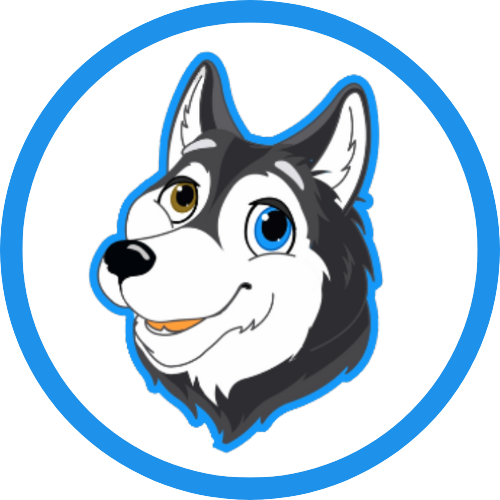
When dogs start to twitch while they sleep, dreams and nightmares are usually responsible for this. Under certain circumstances, these twitches can also be due to epilepsy and other neurological diseases. This is an emergency.
9 times out of 10, however, it’s nothing to worry about because dreams are behind the moves. And dreams are basically a sign of good health.
With such twitches, it is important to pay attention to the rest of the body. In the event of an attack, there are usually other pathological symptoms.
Then let’s take a look at the 3 most common causes.
1. Dreams
Sleep researchers have already shown in studies that dogs have the same sleep phases as humans. Their brain is also very similar to ours.
And yet dogs dream comparatively much more often than we humans. This is primarily because their sleep times are longer and their sleep cycles are shorter.
While a human sleep cycle is around 90 minutes, a dog cycle is only 20 minutes. They also sleep much longer:
- 50% bedtime (~12 hours)
- 30% awake but dormant (~7 hours)
- 20% awake and active (~5 hours)
Since dogs experience the REM phase much more often as a result, twitching during sleep is also comparatively more common. It is even more common in young and old dogs.
During sleep, a signal is sent from the brain to relax the muscles. This is to prevent the dog from chasing the cat in his dream in real life.
In young and old dogs, this mechanism is said not to function fully or at all. In addition, larger races have fewer but longer dreams.
In dogs, dreams primarily serve to process experienced situations and at the same time to satisfy unfulfilled longings. Typical symptoms here are:
- Soft barking in sleep
- Moving eyelids
- Muscle twitching in the legs
- Quiet beeping and whimpering
- Sudden growling while sleeping
The daily amount of sleep can also vary greatly depending on age and breed. Large breeds of young and old age need sleep the most.
By the way, the twitching during sleep does not have to indicate a nightmare. Because researchers have found that they dream primarily of race-specific behavior:
- Beagles: Dreaming of finding and following a scent
- Greyhounds: Dreaming of full sprint chases
- Pointer: Dreaming of pointing to wildlife and potential prey
- Schutzhunde: Dreaming of protecting their territory and their family
- German shepherd: dreaming of guarding and driving their flock
You can sometimes recognize nightmares by the fact that your dog wakes up more often than average or constantly changes its sleeping place at night.
Waking up is unnecessary here – on the contrary! It’s even harmful. It’s not for nothing that the saying goes: “You shouldn’t wake sleeping dogs.”
Because when dogs are suddenly torn from the dream, they are often so confused that they panic or run into a wall.
In dogs, twitching during sleep is one of the typical symptoms of a dream. This doesn’t have to be a nightmare. Rather, dogs dream of experiences and breed-specific behavior. There is no reason to worry here.
2. Epilepsy
Epilepsy is a chronic disease of the nerves that causes periodic epileptic seizures – the so-called “seizures”.
According to statistics, around 1% of all dogs are said to suffer from it. It tends to be most common in very young dogs and male dogs.
Under certain circumstances, the twitching during sleep can also be an epileptic seizure. You can tell the difference by the following symptoms:
- Eyes mostly open with a stare
- Tense and stiff posture
- The dog cannot be spoken to during this time
- Whole body twitches and not just the legs
- Stronger and uncontrolled movements
- The dog suddenly pees in the basket
As scary as such seizures may look, they are usually painless and harmless. And no, dogs don’t swallow their tongues.
However, if the attack lasts for an unusually long time, it can lead to permanent damage or even be life-threatening. But that is relatively rare.
If epilepsy is actually responsible for the twitching during sleep, then you can often recognize this from the behavior afterward. Typical is here:
- Profuse drooling and panting
- Dog is awake
- Severe confusion
- Foam in the mouth
- Disoriented behavior
However, open eyes alone are not a clear indicator. Because there are also some breeds, such as bulldogs and pugs, that naturally sleep with their eyes open.
During such an attack, you should make sure that your dog lies securely and cannot injure itself. After that, I recommend going to the vet immediately.
In rare cases, epilepsy can also be behind convulsions during sleep. During such an attack, the entire body usually twitches and the eyes are wide open. The dog is usually not responsive and then behaves in an exceptionally confused manner.
3. Neurological Disorders
Epilepsy is the most common cause of seizures in dogs. Since they are triggered in the dog’s brain, a variety of other diseases can also be behind it:
- Stroke
- Electrolyte imbalances
- Kidney diseases
- Tick bite
- Anemia
- Head injuries
- Injuries to the spine
- Brain tumor
- Liver diseases
- Narcolepsy
- Reaction to medication
- Poisoning
Important Here: Almost all of these injuries and illnesses are accompanied by other pathological symptoms. If you have any suspicions, I advise you to consult your veterinarian
